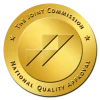Many individuals use drugs or alcohol to mask symptoms of anxiety, depression, or other mental health issues. When they become dependent on these substances, stopping them suddenly can be dangerous and result in serious consequences. In these cases, supervised chemical detox is needed to ensure the safety and comfort of those experiencing withdrawal.
Chemical dependency refers to the need to use substances such as drugs or alcohol to function normally. It is a complex condition that affects both the body and the mind. Over time, the body becomes dependent on the substance, leading to withdrawal symptoms when it is not being used. Breaking free from chemical dependency is challenging, but it is a vital step towards a healthier, more fulfilling life. Chemical detoxification, or detox, can be a safe way to clear substances from someone’s system while being in a supervised setting.
Signs that someone is struggling with a dependency on drugs or alcohol include the following:
- Behavioral Changes: Behavioral changes are often noticeable, such as a decline in performance at work or school, neglect of responsibilities, or social withdrawal.
- Physical Symptoms: Physical symptoms may include fluctuations in weight, changes in sleep patterns, and deteriorating personal hygiene.
- Changes in Mood: Changes such as mood swings, irritability, and unexplained aggression can also indicate substance abuse.
- Financial and Legal Troubles: Financial troubles, frequent legal issues, and strained relationships are common consequences.
- Lack of Interest: Individuals struggling with chemical dependency may have a lack of interest in activities they once enjoyed. They may prioritize substance use over personal and professional responsibilities.
- Social Changes: Sudden changes in friends or social circles can be another red flag to be aware of.
Recognizing signs of dependency is crucial for early intervention and support to help individuals overcome addiction and regain control of their lives.
What to Expect During Chemical Detox
Detoxification is the process of eliminating the substance from the body, allowing it to adjust to functioning without it. Withdrawal symptoms during detox can vary depending on the individual and the substance they used.
Some common withdrawal symptoms that can happen during detox include:
- Nausea
- Sweating
- Anxiety
- Insomnia
- Irritability
In some cases, severe withdrawal symptoms may require prompt medical intervention to ensure the safety of the individual.
Treatment Options During Detox
There are several approaches that can be used during detox to ease withdrawal symptoms and support the individual on their path to recovery, such as:
- Medication-Assisted Treatment: To manage the detox process, certain types of medications can be prescribed to reduce withdrawal symptoms and decrease cravings. At Creekside Behavioral Health, medication is administered in an inpatient setting with 24/7 supervision.
- Therapeutic Support: Counseling and therapy play a crucial role in addressing the psychological aspects of chemical dependency. Behavioral therapy can help individuals learn healthier ways to cope and address the underlying causes of their addiction.
- Nutritional Support: Nourishing the body is just as important as healing the mind. Eating a balanced diet and ensuring the individual receives proper nutrition are essential during detox to support the body’s healing process. Nutritional counseling can be integrated into the detox program to promote overall well-being.
Why Supervised Detox Is Crucial
Detoxification should always be conducted in a supervised setting, preferably under the guidance of medical professionals. There are many reasons why supervised detox is crucial, such as:
- Medical Monitoring: Trained medical staff can monitor an individual’s vital signs and address any medical complications that may occur during detox. This ensures the safety and well-being of the individual throughout the process.
- Individualized Care: Each person’s detox experience is unique, and a supervised setting allows for individualized care plans tailored to specific needs and challenges.
- Emotional Support: Detox can be emotionally taxing on an individual. Having a supportive environment with experienced professionals can provide the necessary emotional support and help navigate detox challenges more effectively.
We Offer Chemical Detox in Tennessee
Chemical detox is a crucial first step on the path to recovery from chemical dependency. Seeking professional help is a sign of strength, and recovery is possible with the proper support and resources. At Creekside Behavioral Health in Kingsport, Tennessee, we offer a range of programs and services, such as inpatient chemical detox. We can help treat mental or behavioral health challenges as well as provide options for those struggling with addiction, substance use disorder, or chemical dependency. To learn more about what we have to offer, please contact us today.






